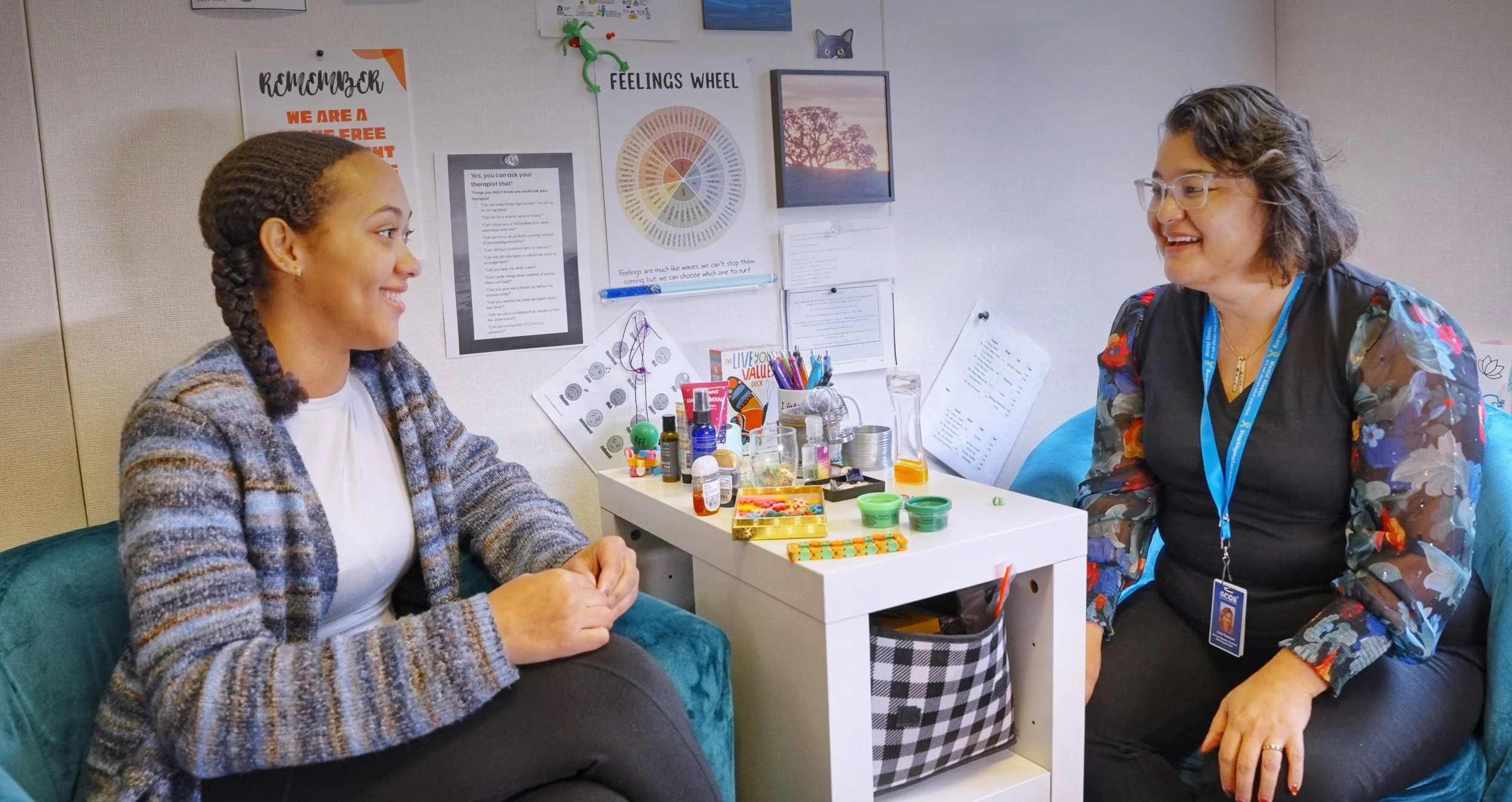
Graduate Clinical Intern Role
Phase 3: On-Site (January-April)
Training Resource Home > Graduate Clinical Intern > Phase 3: On-Site (January-April)
Phase Overview
This training phase will focus on deepening interns’ integration into the school environment while reinforcing their role in supporting the school as a Center of Wellness. Interns will continue to collaborate with their task supervisors to ensure progress towards learning goals.
Phase Objectives
Continue integrating into school culture and develop school relationships as needed to support development of school as a Center of Wellness
Navigate in full understanding of Graduate Clinical Intern role and responsibilities in supporting development of school as Center of Wellness
Participate in multidisciplinary meetings, integrating COST principles and use of universal referral process into school site process if applicable
Collaborate with task supervisor and field instructor to ensure ongoing personal and professional development as well as progress towards identified learning goals
Continue supporting clients including developing/supporting a caseload and facilitating Tier 1, Tier 2, and Tier 3 supports as instructed
Resources
STEP 1
Learning and Development
(to complete in January)
Solidify learning agreement with your field instructor and prepare to begin your field placement at a secondary site if required. Gauge your progress towards completing learning activities and competencies as outlined in your learning agreement.
-
Meet with field instructor for final review of learning agreement
Begin field placement at secondary site (Pupil Personnel Services Credential, PPSC), if required
Meet with field instructor to gauge progress toward completion of learning activities and competencies according to learning agreement
Submit culminating project plan to task supervisor and field instructor
Begin data collection and implementation of culminating project plan
STEP 2
Learning and Development
Wrap up your field experience by reviewing your progress with your field instructor and finalizing all learning agreement components.
-
Meet with field instructor for final review of core competencies, learning activities, and goals outlined in learning agreement
Present and submit culminating project by end of April
Attend honorable closure training
Attend professional development trainings
Continuously monitor action plan progress
STEP 3
Collaboration and Supervision
Take a more active role in delivering direct services across all tiers of support, including school-wide initiatives, group workshops, and individual counseling. Enhance skills in facilitation, psychoeducation, and de-escalation, while also supporting student registration, documentation, and family engagement. Through continued collaboration with school teams and participation in campus events, interns will integrate creative, preventative, and wellness-centered interventions into the broader school community.
-
Continue effective communication with task supervisor and field instructor
Continue to attend regular meetings with supervisor, prepared to reflect on experiences, ask questions, and adjust interventions to meet student needs
Schedule meeting with Career Pipeline coordinator to discuss next steps in career journey
STEP 4
Student Support and Intervention
Understand how to effectively facilitate workshops and provide presentations and psychoeducation. Learn to support students with de-escalation techniques and utilize creativity for multi-tiered interventions. This includes assisting with student registration in the County EHR system, outreach to families and community members, and participation in school activities and events.
-
Effectively facilitate workshops
Provide presentations and psychoeducation
Support students with de-escalation
Utilize creativity to provide multi-tiered interventions for students
Assist with registering students into the County Electronic Health Record (EHR) system
Provide outreach to families and community members
Participate in school activities and events
Continue participating as a member of a COST team if applicable
Provide Tier 1 (school-wide), Tier 2 (group), and Tier 3 (individual) interventions, including school-wide initiatives, community events, workshops, groups, and individual counseling
Continue implementation of early learning and prevention services



